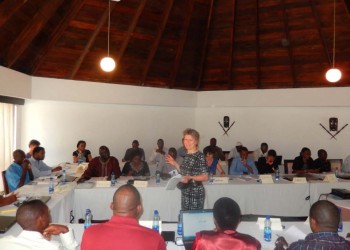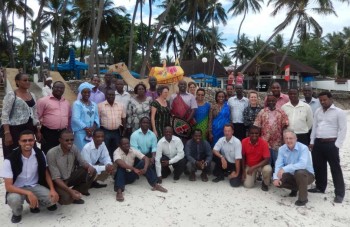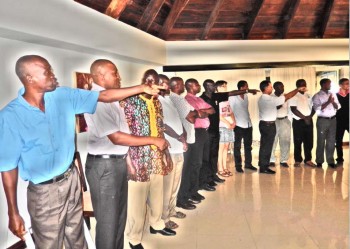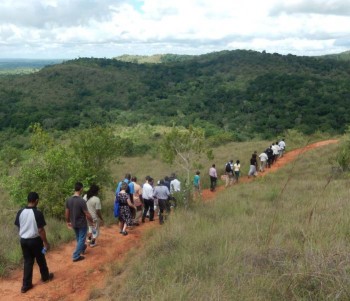The 36th PBF 14-day course has finished in Mombasa at the 12th of April 2014.
There were 30 participants from 7 countries. This time the largest group is from Kenya with 9 participants followed by 5 from respectively Mozambique and Malawi. There were 3 participants from The Gambia and Ethiopia and 2 from both Nigeria and The Netherlands and one from South Sudan. This was the first English spoken course with a delegation from the education sector.
Cordaid aims to start an education PBF program in Malawi. After three years of a successful PBF pilot, Nigeria is contemplating how to scale up PBF to include more Local Government Authorities or even complete States. Scaling up was delayed due to the late arrival of the Technical Assistance team. This is unfortunately often the case with World Bank projects and new procurement instruments should be found to prevent such delays.
The Mozambique group wonders how their successful pilot (mostly targeting HIV/AIDS) should be widened to become a more comprehensive health package approach and how PBF can be made sustainable with government financing. Ethiopia has not yet started PBF, but there is hope that a pilot will start soon in one of the States. It is very positive to note that health facilities in Ethiopia now have bank accounts and that cost-sharing revenues are allowed to be used by the health facilities.
This PBF course also applies the adult learning format with group work, turning point sessions, self study and that each participants develops his or her individual action plan to be implemented immediately after the course. Mombasa with its beautiful beaches, good food and friendly population is a wonderful environment to hold such PBF courses. Yet, the PBF courses are a journey not a holiday. On the final day each participant showed what was learned during a competitive exam. There were 6 distinctions and 1 participant Dr Dereje GEMEDA from Ethiopia who obtained the highest distinctions with 100%.





